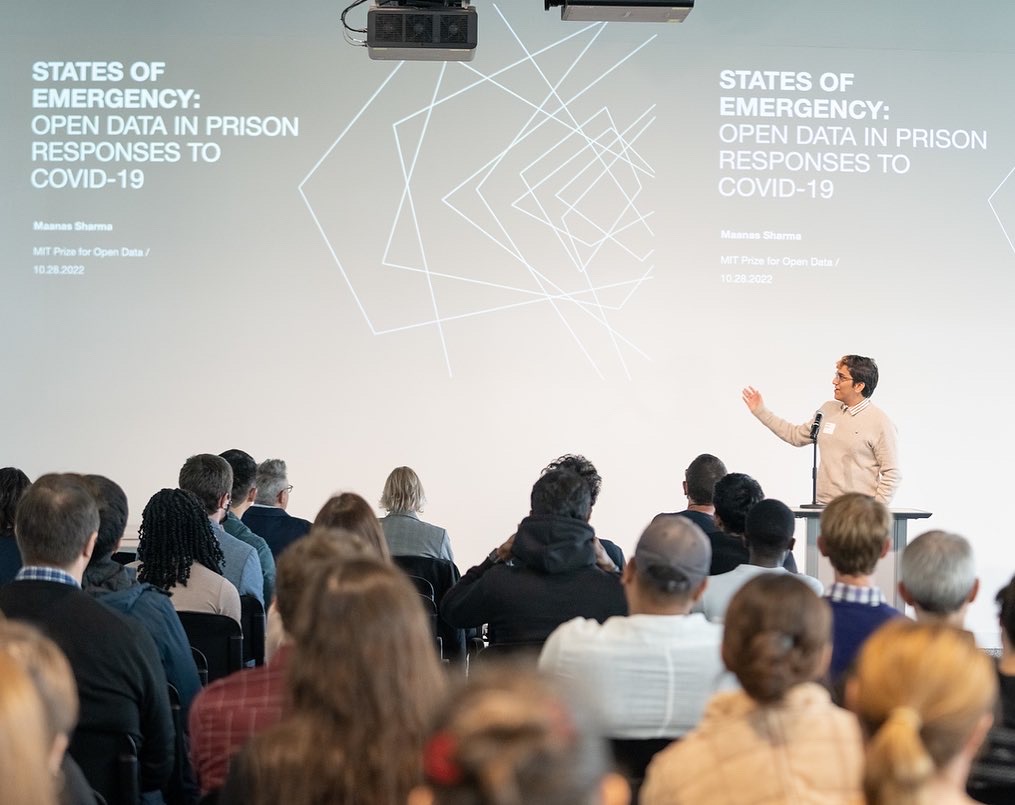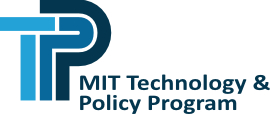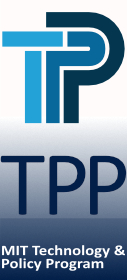
Investigating prison responses to Covid-19
Maanas Sharma ’26 is a first-year undergraduate at MIT with academic interests at the intersections of computation and equitable public policy. He was a Finalist at the 2020 MIT Policy Hackathon, where he first began his research on state prison systems’ responses to COVID-19. Sharma is also a Winner of the 2021 MIT Policy Hackathon, a recipient of the inaugural MIT Prize for Open Data, and a SERC Scholar in the Schwarzman College.
What is the focus of your research? What sort of knowledge and disciplines does it bring together? How will it make an impact?
My research on COVID in prisons began at the 2020 MIT Policy Hackathon (hosted by TPP and IDSS), where one of the earliest advocate groups on the issue, the UCLA Law COVID Behind Bars Data Project, commissioned participants to better understand state and national prison systems’ responses to COVID using computation. However, at that point in the pandemic, prison systems offered little information on their responses, leaving scant data (quantitative or qualitative) to analyze – although investigative journalism revealed unbearable conditions for many incarcerated people.
In the months after the Hackathon, information became slightly more available as advocates pushed departments of corrections to be more transparent. Still, these were grossly inadequate with regards to quantitative data: at no point did more than 20% of jurisdictions receive a passing score on the COVID Behind Bars Data Project’s data reporting and quality scorecard (built from recommendations developed at the Hackathon).
Although the set of quantitative data was lacking, I believed the basic data on infection, death, and vaccination rates could be synthesized with unique qualitative metrics to tell a complete story about a prison system’s response. After researching deeply into mass incarceration and epidemiology, I assembled a set of metrics including various population reduction efforts, elimination of medical copays, free soap availability, and remote visitation. Using these metrics, I finalized a mathematical scoring methodology, which required statistical knowledge and patience to distill limited, disparate, and sometimes inaccurate data into true representations of prison systems’ responses to COVID. I then partnered with the Prison Policy Initiative, a research and advocacy group fighting against mass incarceration, to collect these new data for all 50 states and the federal BOP and publish a final report.
We took great care in our writing to ensure that everyday people could understand our findings, especially those with incarcerated loved ones. As a result, the work has been featured in over 20 print and radio media publications. We also worked with numerous local and national advocacy organizations to support incarcerated lives during the pandemic and beyond. In addition, we guaranteed that the new data we collected (and the rationale of my methodology) was made plainly available to advocates and researchers, which enabled our work to be cited in the Hawaii Supreme Court and many research articles as well to continue supporting advocacy efforts.
What are new things you learned at the Policy Hackathon? What new experiences did attending the Hackathon offer?
I attended the Policy Hackathon early in my junior year of high school, so it was incredibly formational in my interest in data-informed equitable policy. Before the Hackathon, I was interested in pure math and separately in public policy, but the Hackathon showed me the beauty that exists at the confluence of the two. Even outside of my project, the breadth of the opportunities at the Hackathon exposed me to the breadth of work that I could do. In a more concrete way, my teammates at the Hackathon were the first to teach me the basics of data analysis in R and Python, which set me up to eventually win the Policy Hackathon the following year for my team’s work in affordable housing! Additionally, the Hackathon precipitated a large change in how I perceived MIT as a whole. Before the experience, I thought of MIT as only a STEM school, but I soon learned how strong the social science departments here are as well –which made me much more excited about potentially spending my undergraduate years at the Institute, and hence why I decided to apply to MIT Early Action.
How has the Hackathon experience influenced your trajectory at MIT?
Attending the Policy Hackathon and building relationships with people at MIT, and then coming here two years later, is a dream come true. The connections I built through the Hackathon helped me start off my time here already in tune with a lot of the social scientific and interdisciplinary opportunities that other students may only come to know later. For instance, I am a SERC (Social and Ethical Responsibilities of Computing) Scholar at the new Schwarzman College of Computing. I am so grateful to be a part of this amazing community of undergraduates, graduate students, post-docs, and professors who are all moving the ball forward on issues of responsible computing.
Additionally, I recently won the inaugural MIT Prize for Open Data for my work, where I had the incredible opportunity to connect with researchers across the Institute and continue to learn more. At the end of the day, most MIT students will tell you that the best part of MIT is the people, and the Hackathon has played an invaluable role in introducing me to interesting and amazing communities here since before I even enrolled. I can’t wait to see what the next years hold!



